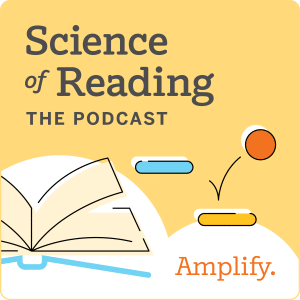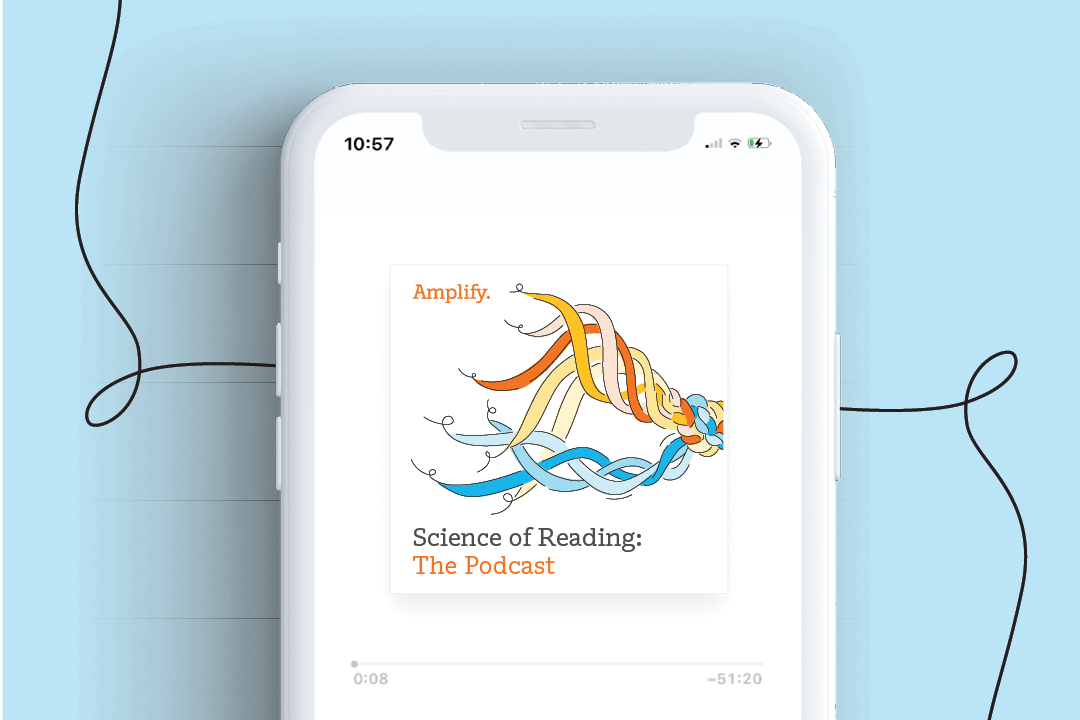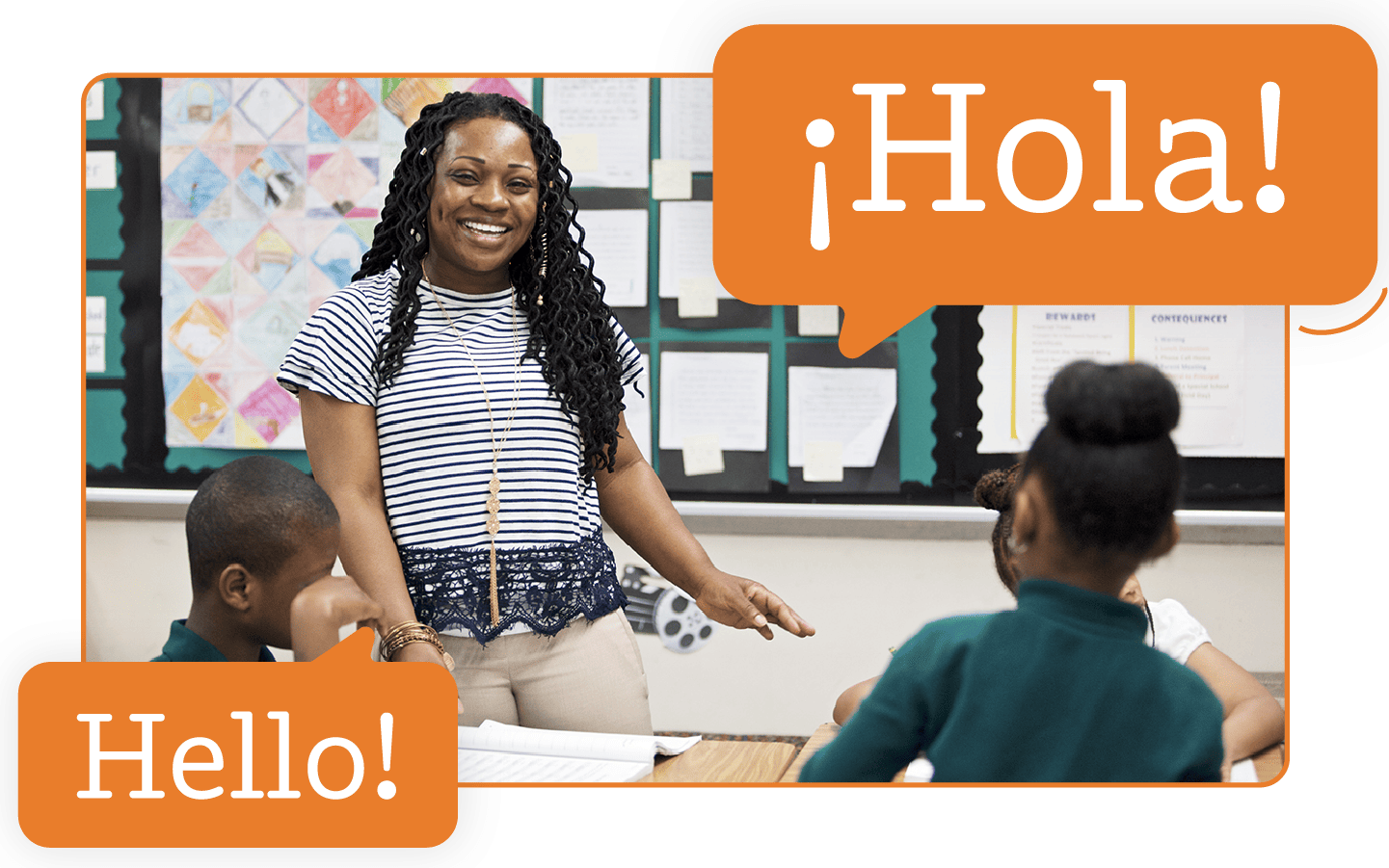
This summer, we launched a Science of Reading: The Podcast miniseries to explore how the Science of Reading supports multilingual/English learners (ML/ELs). Join us to recap these six episodes full of expert insights and dive deep into the discussions shaping the future of biliteracy education.
How does the inform the needs of ML/ELs?
To answer this question and explore inclusive and effective literacy strategies, we gathered experts from several corners of the education world.╠²
Drawing on the insights of these six experts, each episode peels back the layers of traditional and emerging teaching approaches to offer a fresh perspective on how we as educators can support ML/ELs more effectively. Here are some of the key topics they discuss:
- The rapid increase in ML/ELs in classrooms, and why meeting their specific needs is more crucial now than ever
- The cognitive advantages of bilingual education, and of valuing and leveraging linguistic diversity
- Teaching strategies and foundational skills, such as phonemic awareness, that integrate the Science of Reading to meet the needs of ML/ELs
- Diagnosing and supporting ML/ELs with dyslexia, and the critical importance of developing a nuanced understanding of literacy development
- Advice and success stories from seasoned educators whoŌĆÖve implemented effective literacy practices for ML/ELs
WeŌĆÖre so excited to share a recap of each podcast episode, and we hope you feel inspired to experience the words of our experts firsthand! LetŌĆÖs dive in.
Episode 1: Language is always an asset, with ČČę§│╔╚╦░µapp Vice President of Biliteracy Kajal Patel Below
In our miniseries opener, Kajal Patel Below dives into the details of how the Science of Reading intersects with ML/EL education. She highlights the urgent need for educational systems to better support these learners, as well as the critical gaps in teacher preparedness and overarching research landscapeŌĆöstating ŌĆ£only 30% of teachers feel fully prepared to teach multilingual learners.ŌĆØ
ŌĆ£WeŌĆÖve got an underserved group thatŌĆÖs only growing,ŌĆØ Below says. ŌĆ£ItŌĆÖs time to align our research and teaching methods to their needs.ŌĆØ She also makes it clear that adjusting our approach to the Science of Reading is crucial to enhancing how we support ML/ELs.
Here are some key points discussed in the episode:
- ItŌĆÖs not all about phonics. Yes, phonics is essential, but it shouldnŌĆÖt overshadow the development of language comprehension, phonemic awareness, and vocabulary.
- Advocacy is key. Below discusses an important joint statement issued by The Reading League and the National Committee for Effective Literacy advocating for evidence-based literacy instruction tailored to the needs of ML/ELs.
- Language is an asset. Below views language skills as assets, not deficits, a perspective shift vital for fostering educational environments where ML/ELs can thrive.╠²
Listen to the full conversation with Kajal Patel Below to learn more!
Episode 2: ╠²Nurturing multilingualism, with Jim Cummins, Ph.D.
In this episode, Jim Cummins, Ph.D., kicks things off by diving into the cognitive benefits of bilingual education, leading with a simple truth: ŌĆ£The more linguistic skills and the more literate skills we have, the more opportunities we have.ŌĆØ╠²
Here are some of his insights:
- Bilingual education enhances cognitive development, not just language skills.╠²
- We can leverage linguistic diversity.
- Classrooms must embrace translanguaging. ╠²
ŌĆ£Teaching in a multilingual classroom requires creativity and adaptability,ŌĆØ he says, ŌĆ£but the rewards are immense. WeŌĆÖre preparing students for a globalized world where multilingualism is an asset.ŌĆØ
Listen to the full conversation with Jim Cummins to learn more!
Episode 3: Diagnosing dyslexia in multilingual learners, with Francisco Usero-Gonz├Īlez
╠²“Dyslexia transcends language barriers,ŌĆØ Francisco Usero-Gonz├Īlez says, ŌĆ£and must be approached with an understanding of the multifaceted nature of students.”
So how can educators better detect dyslexia among ML/ELs, and what steps can be taken?
Here are a few of Usero-Gonz├ĪlezŌĆÖs strategies for success:
- Identify and address dyslexia early.
- Enhance collaboration.
- Begin assessments and interventions in the student’s first language to establish a baseline.
Listen to the full conversation with Francisco Usero-Gonz├Īlez to learn more.
Episode 4: ╠²Practical strategies for multilingual learning, with Diane August, Ph.D.
What do we know about older ML/ELs? And how do we ensure that they not only catch up, but excel in new linguistic environments?
Diane August, Ph.D., explores these questions and more, sharing her extensive expertise on supporting older ML/ELs and the methods required to effectively enhance literacy and language acquisition among this diverse student group. Her bottom line? “Empowering older multilingual learners requires a blend of high expectations and strategic support.”
She offered the following guidance for educators working with older ML/ELs:
- Translate content: Ensure students access grade-level content in their home language.
- Enhance understanding: Preview vocabulary before engaging with the text.
- Engage students actively: Encourage partner discussions based on text and key vocabulary.
“By adopting these strategies, educators can create a learning environment that supports all students,ŌĆØ August says, ŌĆ£especially those facing the dual challenges of mastering a new language and meeting academic standards.”
Listen to the full conversation with Diane August to learn more.
Episode 5: ╠²Serving every student, in every seat, speaking any language, with Genie Baca
With three decades in education informing her journey, Baca evolved from a balanced literacy literacy advocate to being fully invested in the Science of Reading.
Listen to hear how strong leadership, a dedicated staff, and research-based educational methodologies helped her successfully cultivate an inclusive and effective learning environment for ML/ELs.
Some of Baca’s insights and strategies for driving literacy success at Eastridge Elementary:
- Adapt communication to meet diverse linguistic needs. Eastridge uses translators to create audio messages in studentsŌĆÖ home languages, ensuring vital information is accessible to all families.
- Recognize the foundational role of oral language in literacy. Baca emphasizes rigorous language use in the classroom, detailing strategies like requiring full-sentence responses and structured peer discussions to reinforce language skills.
- Use culturally responsive materials. Culturally relevant and multilingual materials ensure all students find relatable and comprehensible content, aiding in both language and literacy development.
For more specific, actionable approaches, tune into Ą■▓╣│”▓╣ŌĆÖs episode and check out the accompanying .
Episode 6: ╠²Curating a confident classroom for multilingual learners, with Arturo Valadez S├Īenz
ŌĆ£ItŌĆÖs all about confidence, building the studentŌĆÖs confidence,ŌĆØ says Arturo Valadez S├Īenz, a bilingual demonstration teacher from Dallas Independent School District. ŌĆ£ItŌĆÖs a huge component of preparing students to be successful.ŌĆØ
This confidence is a cornerstone of Valadez S├ĪenzŌĆÖs teaching philosophy, which he has built over many years throughout his career in marketing in Monterrey, Mexico, and as an educator in Texas. In this episode, he outlines his dynamic approach to bilingual education, in which he alternates between English and Spanish instruction to keep students engaged and help them build skills in both languages.╠²
Valadez S├Īenz also emphasizes the importance of leveraging the strengths of bilingual pairs to foster collaboration and mutual learning among students with varying language proficiencies.╠²╠²
Here are a couple of Valadez S├ĪenzŌĆÖs tips for implementing his approach to cultivate a supportive classroom environment:
- Build student confidence.
- Set high expectations and believe students will meet them.
- Foster a culture of collaboration.
- Teach writing strategies.
- Introduce and share learning goals, along with success criteria.
- Build student confidence by, for example, walking around the classroom and giving everyone a check mark.
Listen to the full conversation with Arturo Valadez S├Īenz to dive into more strategies.
More to explore:
- Join thousands of educators╠²like you by subscribing to !
- Blog post: ŌĆ£5 ways to boost biliteracy with the Science of ReadingŌĆØ
- Download your copy of our ebook: Unleashing Powerful Writers: Providing Strong Writing Instruction for Multilingual/English Learners


